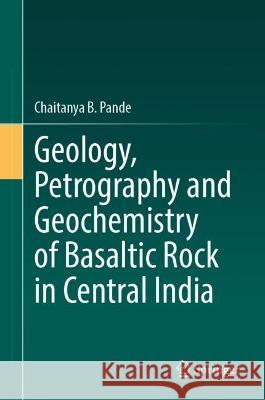Geology, Petrography and Geochemistry of Basaltic Rock in Central India » książka
topmenu
Geology, Petrography and Geochemistry of Basaltic Rock in Central India
ISBN-13: 9783031305733 / Angielski
Geology, Petrography and Geochemistry of Basaltic Rock in Central India
ISBN-13: 9783031305733 / Angielski
cena 603,81
(netto: 575,06 VAT: 5%)
Najniższa cena z 30 dni: 578,30
(netto: 575,06 VAT: 5%)
Najniższa cena z 30 dni: 578,30
Termin realizacji zamówienia:
ok. 16-18 dni roboczych.
ok. 16-18 dni roboczych.
Darmowa dostawa!
Kategorie BISAC:
Wydawca:
Springer
Język:
Angielski
ISBN-13:
9783031305733











